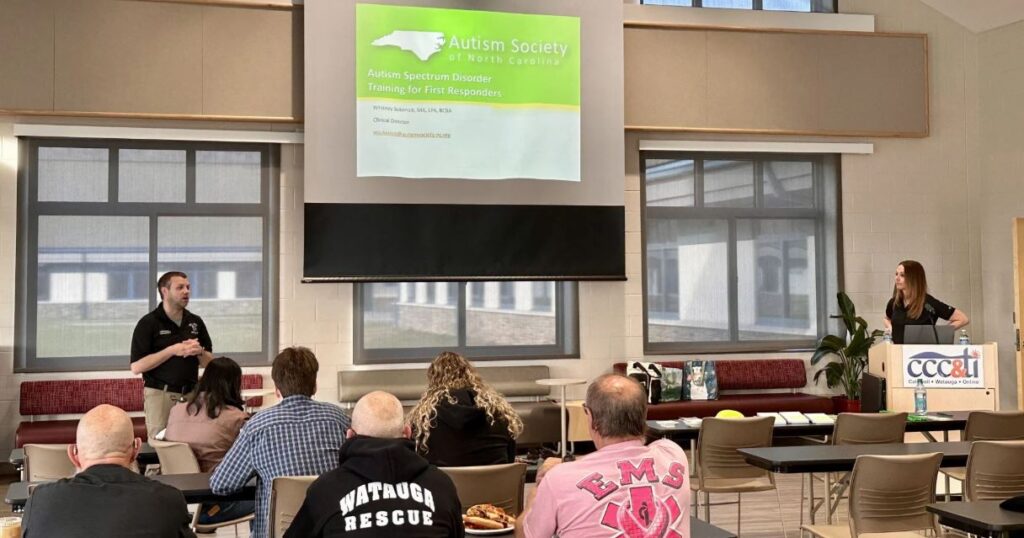First responders across North Carolina are taking meaningful steps to better support individuals with autism during emergencies. In a recent collaborative training hosted at Caldwell Community College, emergency personnel from fire departments, EMS, and law enforcement gathered to learn how to provide more compassionate, effective care to autistic patients.
The session, led by Whitney Sukonick of the Autism Society of North Carolina, focused on recognizing autism-related behaviors, understanding sensory sensitivities, and improving communication strategies in high-stress environments. This kind of training is rare in initial first responder education—but, as Watauga County Rescue Squad Chief Nate McCoy pointed out, it’s becoming increasingly essential.
Meeting Patients Where They Are
Every person with autism is different. Some may be nonverbal, others might be easily overwhelmed by flashing lights or loud noises, and many rely on routines and predictability to feel safe. During a medical crisis, those needs don’t go away—they intensify.
The training gave emergency responders practical tools to identify and accommodate these differences. By learning how to reduce sensory overload, speak clearly and calmly, and maintain patience, responders are now better equipped to de-escalate situations and provide safer care for autistic individuals of all ages.
What stood out most was the commitment from local agencies to grow their understanding of the communities they serve. These aren’t just professional skills—they’re human ones.
Building a More Inclusive Community
As calls involving autistic individuals become more frequent, having trained responders who understand autism makes a difference—not just in safety, but in dignity. These trainings represent a growing awareness that real inclusion starts with education, empathy, and action.
At Pops ABA, we believe this same philosophy applies beyond emergency response. Every child with autism deserves consistent, specialized support tailored to their needs—whether it’s at home, in school, or in everyday life.
Offering Compassionate Autism Services in North Carolina
We’re proud to provide autism services in North Carolina rooted in evidence-based practices and genuine care. Through personalized ABA therapy, we help children develop critical communication, social, and adaptive skills to navigate the world more independently.
Get in touch today to find out how we can support your child and family. We’ll walk you through your options, explain how ABA therapy works, and answer any questions about starting services in your area. You don’t have to navigate this alone—we’re here to help.



